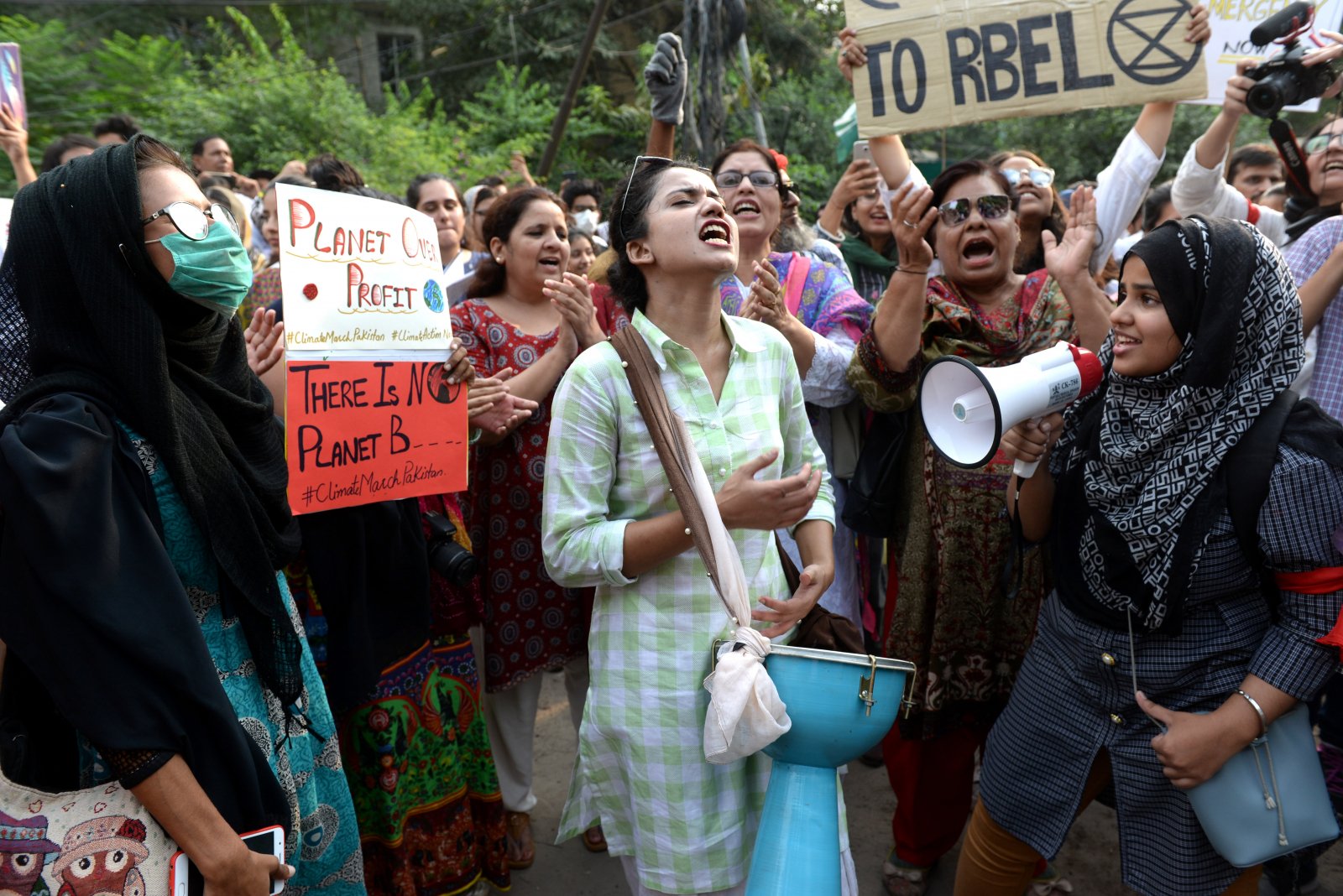
SHARE
On October 11, we will celebrate International Day of the Girl Child, an occasion to recognize the power of adolescent girls and young women worldwide as changemakers and leaders. Despite persistent barriers, girls and young women are continuing to lead political and social movements and contributing to democratic resilience worldwide. Young women activists from around the world have been leaders in movements to fight for climate action, racial justice, and inclusive, citizen participation—organizing protests, rallies, strikes, sit-ins and lawsuits to fight for political and social change. In Lebanon, young women were at the forefront of the 2019 ‘October Revolution’ and remain actively involved in youth-led mutual aid networks and follow-on protests after the August 4th explosion in Beirut. In Belarus, women -- many of them young women -- have made a significant impact on protests as leaders and organizers for change following a contested presidential election. Young, Black women have been integral leaders and organizers of the Black Lives Matter movement and the fight for racial justice both in the United States and all over the world.
It's not always obvious from the media reporting, but girls, particularly those from Black, Indigenous and South Asian communities, continue to be at the forefront of the fight against climate change around the world. They are holding digital protests and actions throughout the pandemic, and using the variability in COVID-19 responses to press for adherence to science. In the first-ever episode of NDI’s Changing the Face of Politics podcast series, Birgitta Ohlsson interviewed Vanessa Nakate, about her experience as a young climate activist in Uganda. Vanessa said: “I think that everything has changed because young women have seen that their voice is important in society...it is not easy, it hasn't been easy, but we still go out there, and demand for justice, because we see that our future is at stake.”
However, this year’s celebration is marred by the devastating impact of the COVID-19 pandemic on girls and young women. A successful transition into adulthood is defined by whether a young person is allowed to grow and develop their full potential. For girls and young women, it is also defined by opportunities to develop self-confidence, which has been shown to have a significant impact on their future aspirations. The global think tank Overseas Development Institute (ODI) identified a “strong relationship between girls’ experience and opportunities in adolescence and their leadership capabilities.” For those who are able to access it, formal education opportunities create early opportunities and entry points for engagement and self-advocacy, which are necessary stepping stones to civic and political activism. As schools around the world shut their doors, millions of girls are having their education curtailed, and many are being simultaneously forced to take on additional household work and care responsibilities. It is estimated that 10 million secondary school-aged girls could be out of school permanently as a result of the crisis. The loss of even six months of education will have a worse impact on girls in low and lower-middle-income countries. UNESCO estimates that many girls could lose up to 50% of their total years of education. School closures are also resulting in higher rates of unplanned pregnancies, child marriages, and gender-based violence against girls and young women. All these dynamics will have intergenerational impacts on the lives of girls and young women, and on the development of their communities. We are also at risk of both reducing the pool of talent and diminishing the potential of a whole generation of girls who are poised to become future political leaders.
It is now proven that increasing girls and young women’s participation in politics leads to positive impacts for countries’ development and growth. More women lawmakers are associated with improved government accountability, more inclusive policy choices, and increased collaboration between political factions. To secure these contributions for the next generation, we must work now and beyond the pandemic to establish sustainable pathways to activism and political engagement for girls and young women.
Although young women are taking up their place as activists and leaders, their contributions are not being recognized in formal decision-making spaces, specifically those that are responsible for crafting policy responses and contingency plans related to COVID-19 relief. Changing this will require a concerted, collective effort from governments, policymakers, civil society groups, and international organizations alike to prioritize the well-being and participation of girls and young women. These actors have a responsibility to:
-
apply an intergenerational lens to crisis response and recovery;
-
take their cue from girls and young women and integrate inclusive, feminist models of leadership;
-
leverage existing efforts to mitigate the impact of the pandemic;
-
work with families and caregivers and find safe ways to keep girls and young women learning throughout the pandemic;
-
identify a roadmap for a “safe return to school for all girls”;
-
make room for girls’ and young womens’ direct participation in policy development; and
-
craft targeted policies that address pitfalls in the current response.
Given that systemic shocks like the COVID-19 pandemic, conflict and disasters are a constant and recurring presence in all our lives, it is more important than ever to ensure that girls and young women are included in decision-making so that we can build back a better, more resilient and more democratic world. One in which achieving gender equality and women's political empowerment is an imperative. Then, we will have changed the face of politics.
Authors: Rachel E. Mims is Senior Program Officer with the Citizen Participation team and Tamar Eisen is a Senior Program Assistant with the Gender, Women and Democracy team at NDI.



